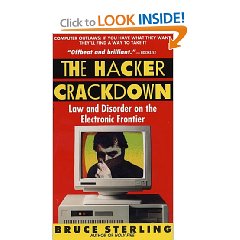Robert B. Oakley
EDITED 18 September 2007 to add links to other books. Still Ref A.
In excruciating detail, with substantial commonality between a number of case studies, this book examines the traditional public security (police, internal order) function in relation to failed states and external interventions.
This is not a book about the larger issue of when and how to intervene in the internal affairs of states beset by internal conflict and it is not a book about the actual conditions around the world that require some form of imposed or reinforced public order. Rather, it is the most detailed book one could hope for on the need for an international law enforcement reserve that is capable of rapidly filling the gap in local public police services that occurs when the indigenous capability collapses and traditional military forces arrive unprepared to meet this need.
All of the case studies are world-class, with primary source detail unlike any normally seen in the literature. All agree that this is a “force structure” issue that no government and certainly not the United Nations, has mastered, but most give due credit to UN civilian police operations for being the best available model upon which to build a future capability.
The summary of conclusions by Ambassador Oakley and Colonel Professor Dziedzic are alone worth the price of the book. If the Cold War era might be said to have revolved around early perceptions of a “missile gap”, the 21st Century with its Operations Other Than War (OOTW) could reasonably be said to have two issues-natural conditions such as depleted water resources, which is not the book's focus, and the “globo-cop gap”, which is-the book documents in a very compelling manner the fact that there is a major capabilities (and intelligence) chasm between preventive diplomacy on the one side, and armed military forces on the other, and that closure of this gap is essential if we are to improve our prospects for rescuing and maintaining public order around the world.
The capabilities of U.S. military police and civil affairs specialists are touched on by several pieces, but I for one would have liked to see more emphasis on what changes in their force structure is required-my understanding is that we have not increased their numbers in the aftermath of the Cold War despite the fact that these units are being used up all over the world, without relief.
The conclusion highlights the need for constabulary forces, and helpfully identifies the following specific national capabilities as being relevant (in this reader's interpretation) to a future standing international gendarmerie: U.S. Military Police and Special Forces, French gendarmerie, Spanish Guardia Civil, Chilean carabineros, Argentine gendarmes, Italian carabinieri, Dutch Royal Mariechaussee). I would add the Belgian Gendarme, the first national force to establish an open source intelligence network across all police precincts in the entire country.
It is clear from both the conclusion and the case studies that this constabulary-police capabilities requirement needs agreed-upon international concepts, doctrine, training, earmarked resources including surge capabilities and transport, and so on. We do not appear to have learned any lasting lessons from the various interventions, in that civil affairs and military police continue to be “last in line” for embarkation into areas where military forces are being introduced, and there is no U.S. program within Program 150 where we can demonstrate a real commitment to “law and order” as part of our contribution to peace in the 21st Century.
The book lacks an index, a typical shortcoming of think tank and defense educational institutions, and this is a major flaw that should be corrected in the next printing. This book is “Ref A” for every foreign service, military, and law enforcement officer interested in doing a better job of integrating diplomatic, gendarmerie, and military capabilities in every clime and place.
See also:
Breaking the Real Axis of Evil: How to Oust the World's Last Dictators by 2025
See No Evil: The True Story of a Ground Soldier in the CIA's War on Terrorism
Sleeping with the Devil: How Washington Sold Our Soul for Saudi Crude
Deliver Us from Evil: Peacekeepers, Warlords and a World of Endless Conflict
The Unconquerable World: Power, Nonviolence, and the Will of the People
The Sorrows of Empire: Militarism, Secrecy, and the End of the Republic (The American Empire Project)
War of the Flea: The Classic Study of Guerrilla Warfare
The Road to 9/11: Wealth, Empire, and the Future of America








